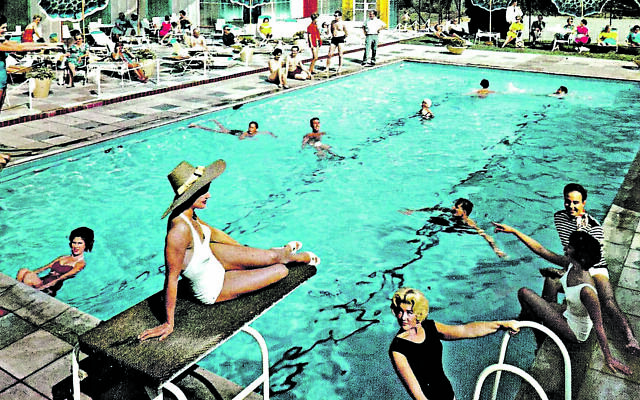The Bourne identity: A celebration of the south coast’s finest Jewish hotels
Francine Wolfisz gets stuck in to a new book about the Jewish hotels of Bournemouth
Francine Wolfisz is the Features Editor for Jewish News.
My grandmother could often be overheard saying a sunny day in Bournemouth was just as good as any spent on the Med – and she wasn’t far wrong.
When the barometer climbs, sunseekers can be seen flocking in their thousands to these famous golden sands. But for Bournemouth’s Jewish visitors, it’s not just the enviable beach that has kept heimische generations returning to a place once seen as the British answer to the Catskills. This coastal jewel has served up far more than sun, sea and sandcastles, as Pam Fox reveals in her fascinating book, Jews By The Seaside: The Jewish Hotels and Guest Houses of Bournemouth.
The social historian’s latest title, which follows The History of the Jewish Community of Golders Green and History in the Baking: The Rinkoff Story, was the subject of much lively debate when she and I appeared ‘in conversation’ at last week’s inaugural Barnet Literary Festival.
Fox, who wrote the book mostly during the national lockdown in 2020, brings together a wealth of personal stories and historical detail copiously mined from the Jewish Chronicle archives in her engaging narrative, which charts how over the course of just a few decades, a quaint coastal settlement exploded into one of the premier holiday spots of the 21st century.
“Bournemouth started out very humble indeed,” she explains. “Other resorts had developed from existing communities, harbours or ports, but there was absolutely nothing in Bournemouth – it was just this great big open space between Christchurch and Poole.
“Its first incarnation was mainly as a spa town for pulmonary diseases – although there were other reasons to visit. While looking through the archives, I came across this wonderful quote from a Jewish man who announced he was going there to recover from the ‘effects of exasperation’!”
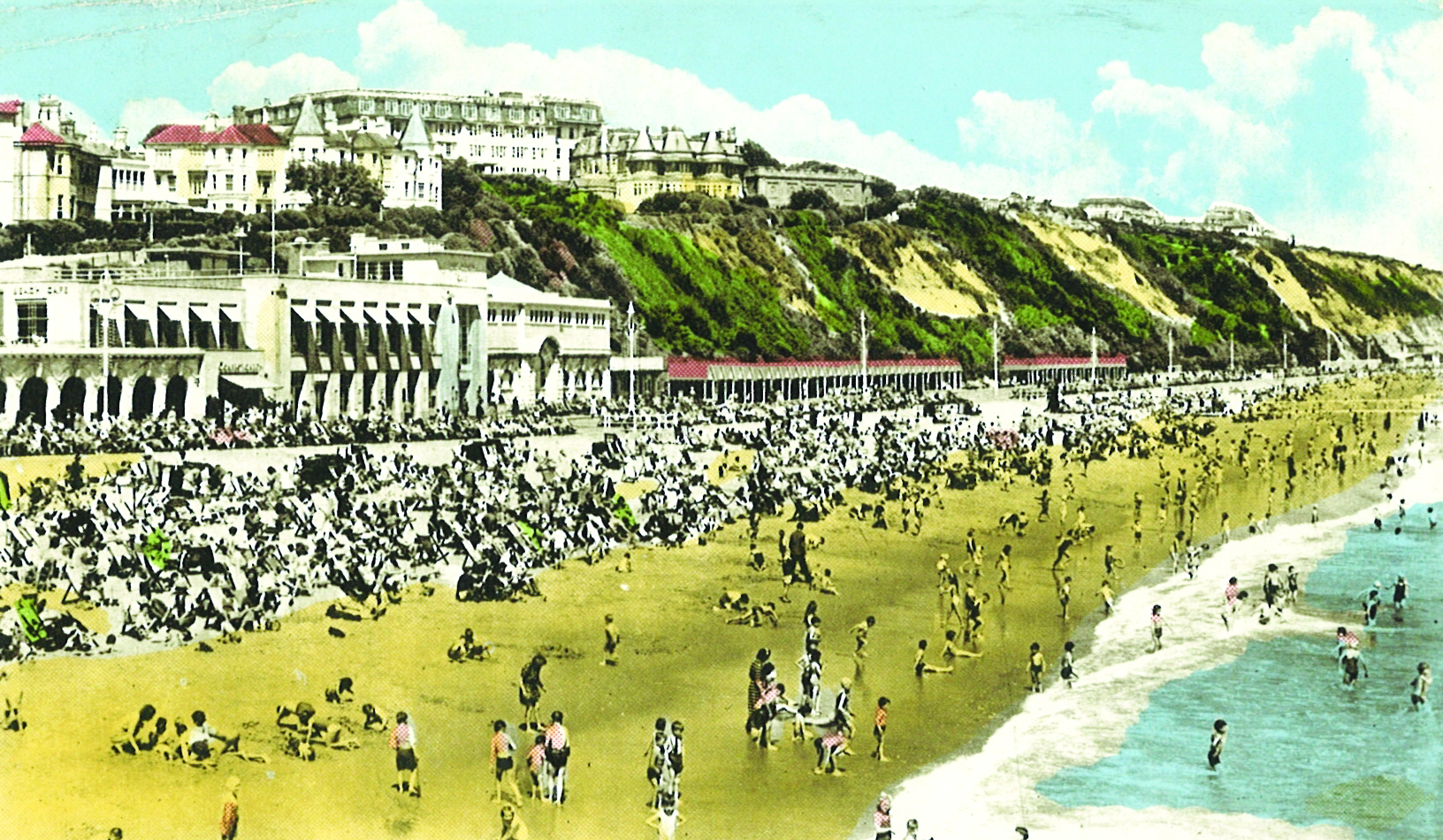
From small beginnings, boarding houses gradually began to spring up around the town for Jewish visitors. But it was the boom time of the inter-war years that saw a real proliferation of hotels, each one bigger and better than the one before it, erupting all along the East Cliff – a stretch that affectionately came to be known as ‘the Jewish mile’ – in a bid to attract a growing number of upwardly mobile Jews.
“When they were advertising themselves, they never ran out of superlatives,” laughs Fox. “They were the ‘biggest’, the ‘best’, the ‘most luxurious’, the ‘only Jewish hotel in Europe’ and so on. The hotels were constantly closing to be extended and have new facilities added, like very swish ballrooms, lifts to all floors and heated accommodation for guests’ chauffeurs!”
For Jewish holidaymakers who could afford the rates, especially around festival times, there was a glittering array of hotels known as ‘The Big Eight,’ comprising Eastcliff Court, Eastcliff Manor, The Ambassador, The Green Park, The Normandie, The Langham, The Majestic and finally, The Cumberland, which opened in 1949.
“They were really quite a phenomenon together,” Fox tells me. “They were the nexus of Jewish holiday-making for the next three decades and whenever Jews gathered, they talked about The Big Eight.”
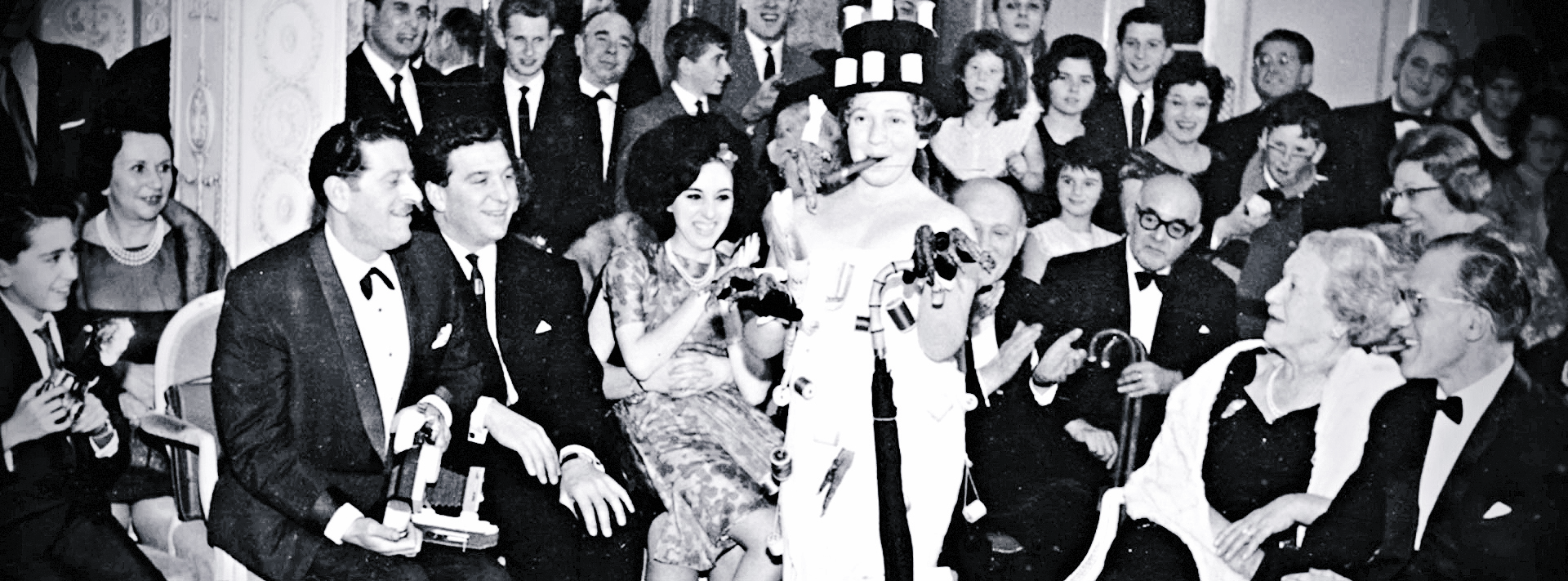
Opulence was key to all the hotels, not just in the glittering ballrooms, dazzling entertainment acts and luxurious ensuite bathrooms, but also for the patrons who frequented them.
One of the book’s contributors, Sheila Samuel, recalls her parents telling her how they witnessed vans arriving at The Cumberland from which they “decanted wardrobes of clothes” and “rails and rails of dresses, enough for at least three changes of outfit per day”, while another tells the story of one visitor who insisted her husband drive her to London and back “so she could have her hair done properly” for Friday night dinner.
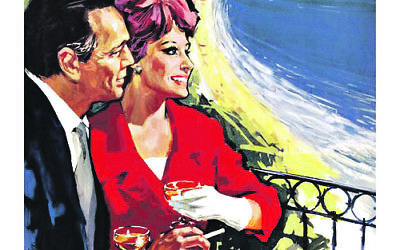 In another amusing instance, Fox writes: “There is a story often told about a husband and wife who were overheard through a bedroom wall at the Green Park: ‘Wife: Morris, should I put on my Dior or Balmain dress? Husband: The Dior. Wife: Morris, shall I put on my blonde or red wig? Husband: Your blonde wig. Wife: Morris, should I wear my diamonds or my rubies? Husband: Your rubies – but hurry up or we’ll be late for breakfast!’”
In another amusing instance, Fox writes: “There is a story often told about a husband and wife who were overheard through a bedroom wall at the Green Park: ‘Wife: Morris, should I put on my Dior or Balmain dress? Husband: The Dior. Wife: Morris, shall I put on my blonde or red wig? Husband: Your blonde wig. Wife: Morris, should I wear my diamonds or my rubies? Husband: Your rubies – but hurry up or we’ll be late for breakfast!’”
Fashion was one way of showing grandeur; food was another. For many Jewish holidaymakers, Bournemouth became synonymous with eating – or rather overeating – as guests indulged themselves in hefty, cholesterol-filled meals that lasted from sunrise to sunset. As Geoffrey Alderman aptly comments: “It was a mind-exploding, waistline-expanding experience, almost a practically non-stop eatathon.”
Why was there this obsession among Bournemouth’s Jewish visitors with showing off one’s furs and diamonds and eating to excess?
“It was much to do with the fact that they could live like this,” says Fox. “They were wealthy, the food was there in abundance and they wanted to show that they had ‘arrived’.”
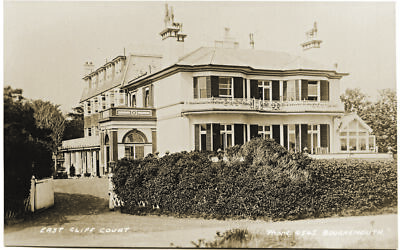
But boom times seldom last forever, even for the Jewish hotels of Bournemouth. Increased kashrut costs, religious polarisation in the Jewish community and “an upsurge in loyalty towards Israel” following the Six Day War all contributed to fewer Jewish holidaymakers packing their suitcases for the Dorset coast.
“The biggest factor was that the hotels had served their purpose,” explains Fox. “They had helped Jews forge this new identity after the war, they had helped Jews assimilate into society and they had done this so successfully that they no longer needed this separate Jewish environment.”
While The Big Eight as we once knew it is no more, their impact on the Jewish community lives on.
Fox adds: “The hotels did much for Jewish continuity, not just as places where younger people socialised and learned to daven, but also where many singles met and eventually married. They were more than just hotels – they helped sustain the community and create many, many Jewish families.”

Jews By The Seaside: The Jewish Hotels and Guest Houses of Bournemouth by Pam Fox is published by Vallentine Mitchell & Co, priced £19.95 (paperback). Available now.

Thank you for helping to make Jewish News the leading source of news and opinion for the UK Jewish community. Today we're asking for your invaluable help to continue putting our community first in everything we do.
For as little as £5 a month you can help sustain the vital work we do in celebrating and standing up for Jewish life in Britain.
Jewish News holds our community together and keeps us connected. Like a synagogue, it’s where people turn to feel part of something bigger. It also proudly shows the rest of Britain the vibrancy and rich culture of modern Jewish life.
You can make a quick and easy one-off or monthly contribution of £5, £10, £20 or any other sum you’re comfortable with.
100% of your donation will help us continue celebrating our community, in all its dynamic diversity...
Engaging
Being a community platform means so much more than producing a newspaper and website. One of our proudest roles is media partnering with our invaluable charities to amplify the outstanding work they do to help us all.
Celebrating
There’s no shortage of oys in the world but Jewish News takes every opportunity to celebrate the joys too, through projects like Night of Heroes, 40 Under 40 and other compelling countdowns that make the community kvell with pride.
Pioneering
In the first collaboration between media outlets from different faiths, Jewish News worked with British Muslim TV and Church Times to produce a list of young activists leading the way on interfaith understanding.
Campaigning
Royal Mail issued a stamp honouring Holocaust hero Sir Nicholas Winton after a Jewish News campaign attracted more than 100,000 backers. Jewish Newsalso produces special editions of the paper highlighting pressing issues including mental health and Holocaust remembrance.
Easy access
In an age when news is readily accessible, Jewish News provides high-quality content free online and offline, removing any financial barriers to connecting people.
Voice of our community to wider society
The Jewish News team regularly appears on TV, radio and on the pages of the national press to comment on stories about the Jewish community. Easy access to the paper on the streets of London also means Jewish News provides an invaluable window into the community for the country at large.
We hope you agree all this is worth preserving.


